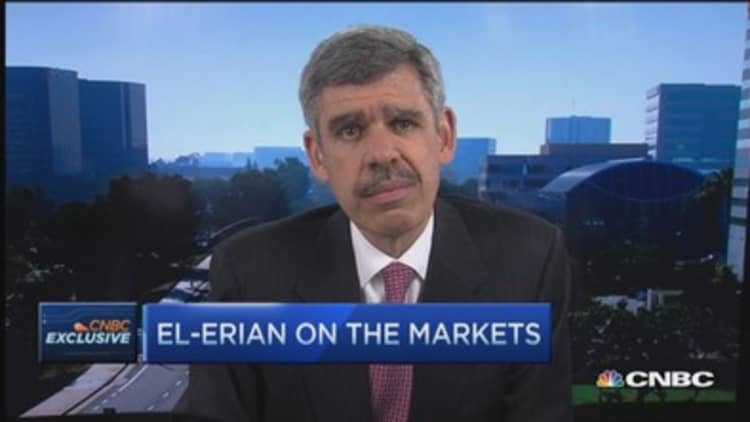
Investors should continue to brace themselves for a bumpy ride, and therefore know where to look to make money, Mohamed El-Erian said Thursday.
Not only is there a divergence in monetary policy between the Federal Reserve and Europe, but the "fundamentals are in motion," the chief economic advisor for Allianz said in an interview with "Closing Bell."
He thinks the Fed will raise rates at or by the September meeting, while the European Central Bank is going to loosen its monetary policy even more.
"Investors should expect a lot more volatility and they should expect more of what they saw in the first quarter, which is the beta trade in U.S. equities not going to be as satisfying as it has been in the past."
That means being very careful in terms of buying the broad index and instead selecting names, El-Erian explained.
Read MoreGross rips 'hostile, artificially priced' market
Specifically, investors should look for companies that are going to be involved in some corporate actions. "There is a lot of cash on the sideline," he said.
Also, he thinks there are certain names that are getting a lot of traction from growth.
Meanwhile, Europe is another place to look because it is going to "benefit from the QE trade," El-Erian added.
He would also be careful of currency exposure because he expects the U.S. dollar to get stronger.
That means headwinds for certain corporate profits, but he doesn't think it means a delay in a Fed interest rate hike.
Read More The contrarian way to play the Fed's next move
El-Erian said the central bank isn't just worried about the dollar, it is also worried about financial excesses and boosting asset prices too high too quickly. He also believes the economic recovery will continue to broaden.
"They will take whatever opportunity they have to normalize, and they're not going to be discouraged by just the dollar," he said. "I think the constraining element would be wages. If they don't see wages pick up, then they won't hike."


